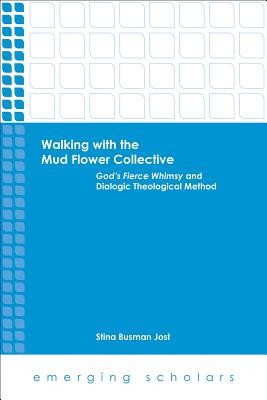
- We will send in 10–14 business days.
- Author: Stina Busman Jost
- Publisher: Augsburg Fortress Publishing
- ISBN-10: 1451465696
- ISBN-13: 9781451465693
- Format: 15.2 x 22.9 x 1.5 cm, softcover
- Language: English
- SAVE -10% with code: EXTRA
Reviews
Description
Arguing for a retrieval of the landmark work, Gods Fierce Whimsy, Stina Busman Jost establishes the critical importance of this volume for the construction of a dialogic theological method. This is accomplished through a close reading of Gods Fierce Whimsy in which the author identifies key methodological characteristics informing the volumes formation. Critical importance also is established through interviews with the volumes authors, the Mud Flower Collectivewhich included Katie G. Cannon, Beverly W. Harrison, Carter Heyward, Ada Mara Isasi-Daz, Bess B. Johnson (Delores Williams), Mary D. Pellauer, and Nancy D. Richardson.
Undergirding this endeavor is a recognition of the theoretical importance of difference to the project of theological construction and the vital form of the dialogic as constitutive of theological practice; this is carried forward through engagement with the pivotal theorists Martin Buber and Mikhail Bakhtin, who helped pioneer the philosophical and literary critical importance of otherness, difference, and dialogue. Finally, the author constructively engages recent developments in feminist theologies and postcolonial theoriesultimately making the argument that a dialogic theological method is relevant for the doing of theology today.
EXTRA 10 % discount with code: EXTRA
The promotion ends in 20d.19:07:55
The discount code is valid when purchasing from 10 €. Discounts do not stack.
- Author: Stina Busman Jost
- Publisher: Augsburg Fortress Publishing
- ISBN-10: 1451465696
- ISBN-13: 9781451465693
- Format: 15.2 x 22.9 x 1.5 cm, softcover
- Language: English English
Arguing for a retrieval of the landmark work, Gods Fierce Whimsy, Stina Busman Jost establishes the critical importance of this volume for the construction of a dialogic theological method. This is accomplished through a close reading of Gods Fierce Whimsy in which the author identifies key methodological characteristics informing the volumes formation. Critical importance also is established through interviews with the volumes authors, the Mud Flower Collectivewhich included Katie G. Cannon, Beverly W. Harrison, Carter Heyward, Ada Mara Isasi-Daz, Bess B. Johnson (Delores Williams), Mary D. Pellauer, and Nancy D. Richardson.
Undergirding this endeavor is a recognition of the theoretical importance of difference to the project of theological construction and the vital form of the dialogic as constitutive of theological practice; this is carried forward through engagement with the pivotal theorists Martin Buber and Mikhail Bakhtin, who helped pioneer the philosophical and literary critical importance of otherness, difference, and dialogue. Finally, the author constructively engages recent developments in feminist theologies and postcolonial theoriesultimately making the argument that a dialogic theological method is relevant for the doing of theology today.


Reviews